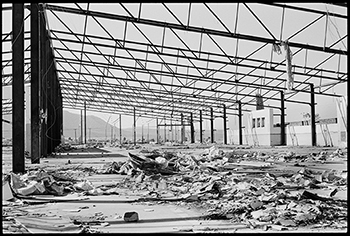Latest News Archive
Please select Category, Year, and then Month to display items
30 May 2025
|
Story Prof Mikateko Mathebula
|
Photo Supplied
 Pictured (from left to right): Prof Faith Mkwananzi, Dr Kapambwe Mwelwa, Prof Lochner Marais, Prof Chikumbutso Manthalu, and Prof Mikateko Mathebula.
Pictured (from left to right): Prof Faith Mkwananzi, Dr Kapambwe Mwelwa, Prof Lochner Marais, Prof Chikumbutso Manthalu, and Prof Mikateko Mathebula.
Through collaborative agreements with the University of Malawi and the University of Zambia, the University of the Free State (UFS) has established the Research Alliance for Higher Education in Africa (RAHEdA), a dynamic initiative aimed at enhancing research capacity and partnerships within Sub-Saharan Africa.
The collaborative agreements align with the UFS’s Vision 130 strategy in relation to internationalisation, emphasising the important role that intra-African mobility visits play in establishing relationships with universities on the continent. It also fosters knowledge exchange and engagement and allows for careful planning and strategy meetings.
“During these discussions, an ambitious but feasible roadmap was laid out for the next three to five years,” Prof Mkwananzi said. “These activities include online workshops for staff and postgraduate students at all partner institutions, and a new webinar series that focuses on profiling, advancing, and celebrating thought leaders, higher education scholars, and scholarship in Africa.”
The inaugural webinar was held on 21 May 2025. Speaker Prof Siseko Kumalo, Associate Professor at the University of Johannesburg’s Ali Mazrui Centre for Higher Education Studies, spoke on ‘Orality as the Bulwark of the Humanities?’, set the bar high for the webinar series through his compelling and original response to this timely question, as scholars around the world contemplate appropriate responses to the rise and influence of artificial intelligence in higher education teaching, learning, and assessment.
Funding to support RAHEdA has been generously provided by Prof Melanie Walker, Distinguished Professor and SARChI Chair in Higher Education and Human Development.
• For information on how to get involved and for updates on RAHEdA, please contact Prof Mikateko Mathebula at MathebulaM@ufs.ac.za
Award-winning photographer exhibits ravages of war, 25 May 2016 until 17 June 2016
2016-06-02

The ruins of the Dimbaza Border Industrial Park built
in the 1970s as a source of cheap labour for industrialists
and ostensible employment for Ciskei Homeland citizens.
This industrial zone collapsed after 1994.
Photo: Images courtesy of the Galerie Seippel.
All images © Cedric Nunn
Cedric Nunn’s latest photographic exhibition, Unsettled: One Hundred Years War of Resistance by Xhosa Against Boer and British, opened on 25 May 2016 at the Johannes Stegmann Art Gallery of University of the Free State, and will run until 17 June 2016. Since 2014, the exhibition has travelled through South Africa and the USA as well as Germany.
The photographer, documentary film-maker, and artist’s photographic journey was launched in the early 1980s in Durban. In 2011, he won the first FNB Joburg Art Fair Award.
Narratives of the victors and the vanquished
Unsettled deals with the nine wars that Xhosa people were subjected to between 1779 and 1879 in their fight against Afrikaner and British colonial settler forces. Nunn’s art seeks to instigate social change, and highlight lesser-seen aspects of society.
The work emanated from his awareness of a notable gap in the telling of this piece of South African history, as well as the fact that, to date, little has been done to memorialise these acts of colonial aggression and Xhosa resistance. He decided to document the land where these struggles took place.
“Through revisiting this painful past in the contemporary scenes of today, this work attempts to place the present in its factual context of dispossession and conquest,” said Nunn.
Unsettled forms the first component of what will be a trilogy. The next component will address the legacy of colonial dispossession through “bringing ‘the first inhabitants’ back into the picture by giving a select number of self-describing Khoi, Griqua, and San or Bushmen a contemporary face and presence”. The final component will look at slavery.